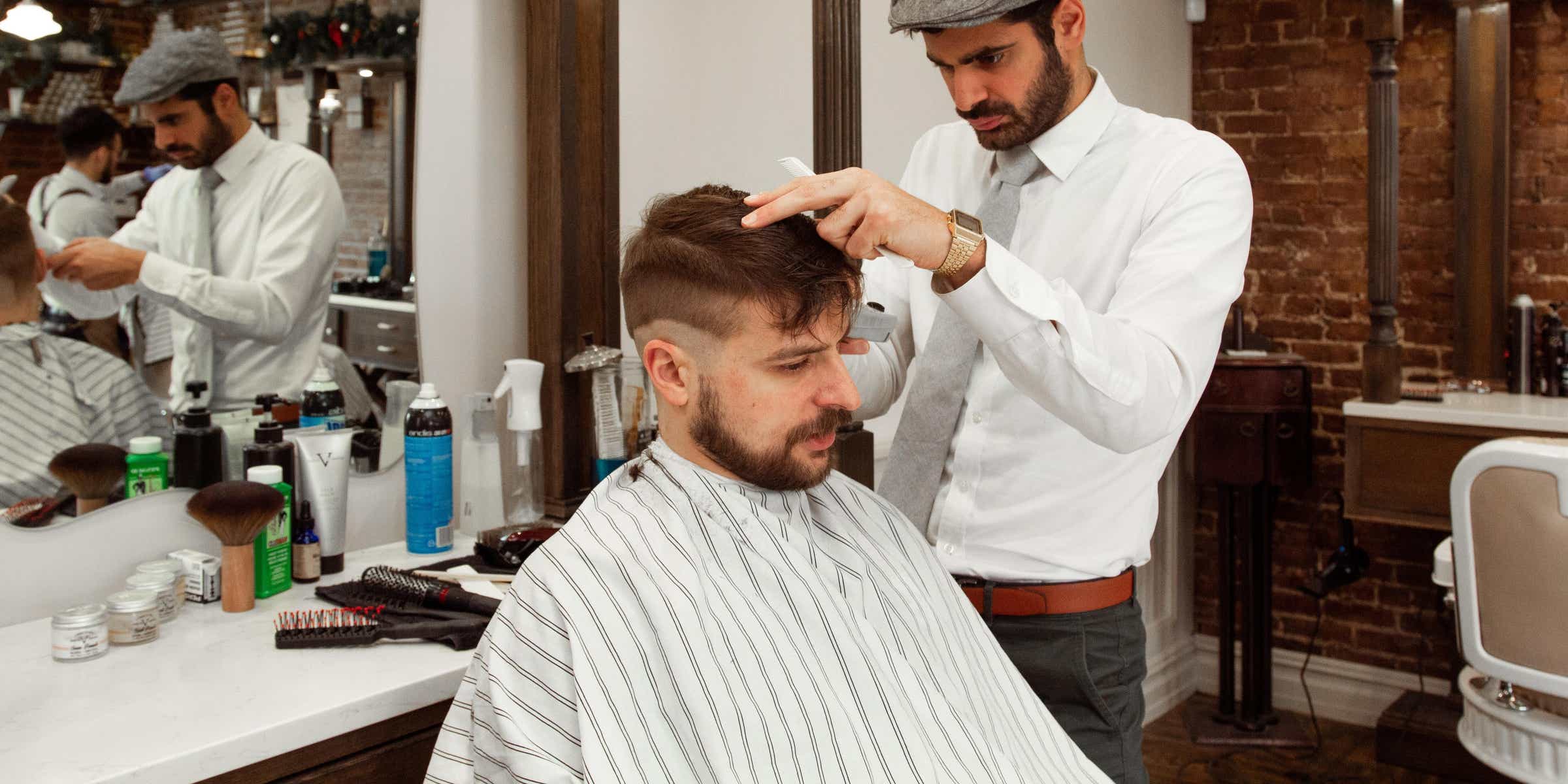
Barbers, sometimes known as hairdressers, provide a range of hairdressing services to mostly male consumers. They cut, style, colour, and style hair clip facial hair and provide massages.
An apprentice barber will consult with clients and ensure all hair-related needs are addressed. Barbering includes cutting, trimming, styling, and colouring customers’ hair to their requirements, fitting and maintaining hairpieces and collecting money. You should also be able to provide hairstyle suggestions and general advice.
Customers should be able to get excellent facial hair grooming services from barbers. Finally, a skilled barber should know the current and emerging hairstyles and trends.
Responsibilities
Throughout your apprenticeship, you may help:
- welcome customers and find out what they want
- give advice on hairstyles and grooming
- cut and style hair
- shave, trim and shape beards and moustaches
- provide scalp, face and neck massages
- clean and sterilise equipment, like combs, razors and clippers
- take payments, keep records and make appointments
- keep up to date with new styles and techniques.
Salary
As an apprentice barber your starting salary will be £15,000 a year rising to £25,000 a year once qualified and with experience. Tips from customers, and possibly commission from products you may sell in the shop, can increase your income.
Working hours
You will be expected to work weekends, evenings and holidays. Typically, you will work 37 to 40 hours a week.
Working environment
You could work in a barbershop, at a client’s home or on a film set.
Your working environment may be physically active.
Qualifications
Qualifications you can achieve as an apprentice barber include:
Level 2 Hair Professional – Entry requirements for this level include some GCSEs, usually including English and maths, or equivalent, for an intermediate apprenticeship. this qualification will typical take 24 months to complete.
Skills
On a barber apprenticeship, you’ll learn:
- customer service skills
- to be thorough and pay attention to detail
- active listening skills
- the ability to work well with your hands
- sensitivity and understanding
- the ability to work well with others
- the ability to work on your own
- excellent verbal communication skills
- to be able to carry out basic tasks on a computer or hand-held device.
Career path and progression
You might climb to the position of a senior barber with time and experience. Then, you can advance into training or assessing student barbers if you seek more credentials.
You may even open your barbershop independently or as part of a franchise.
